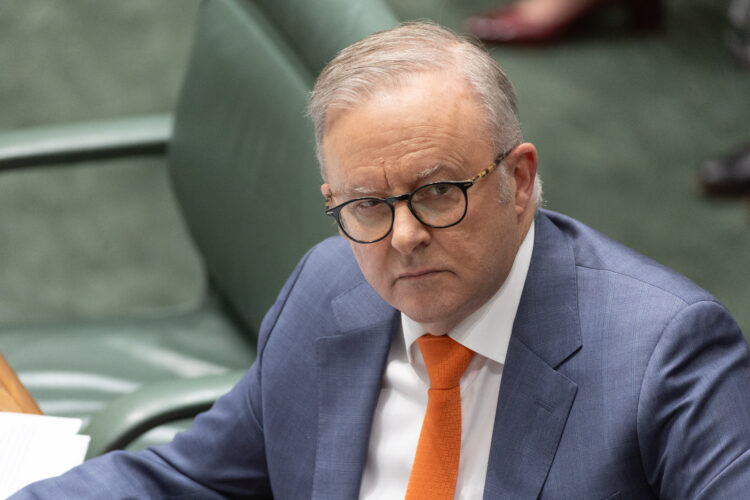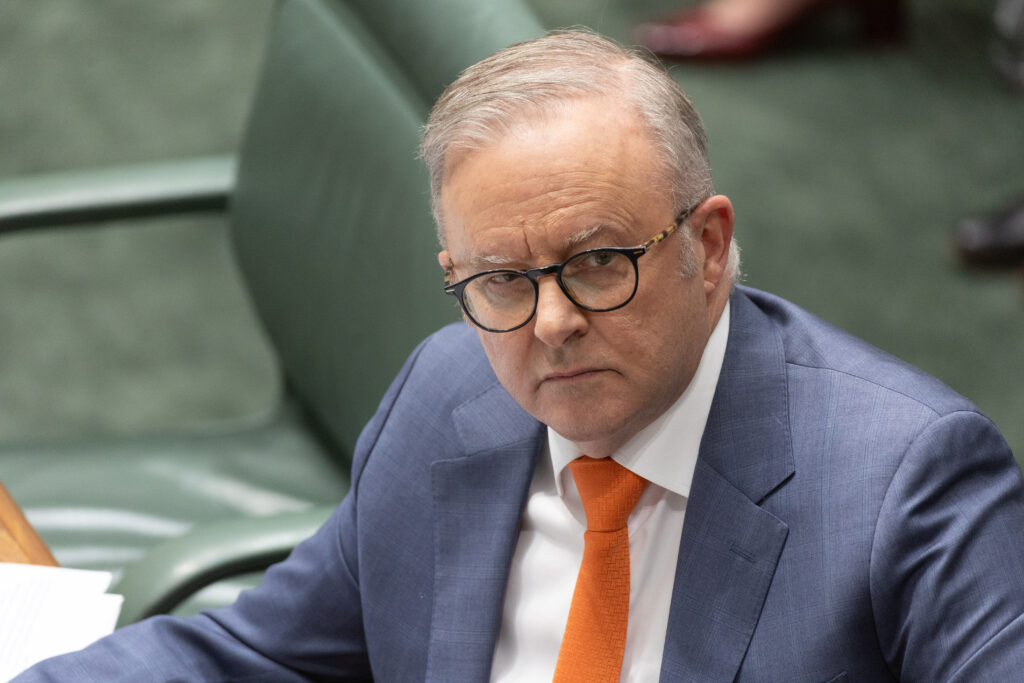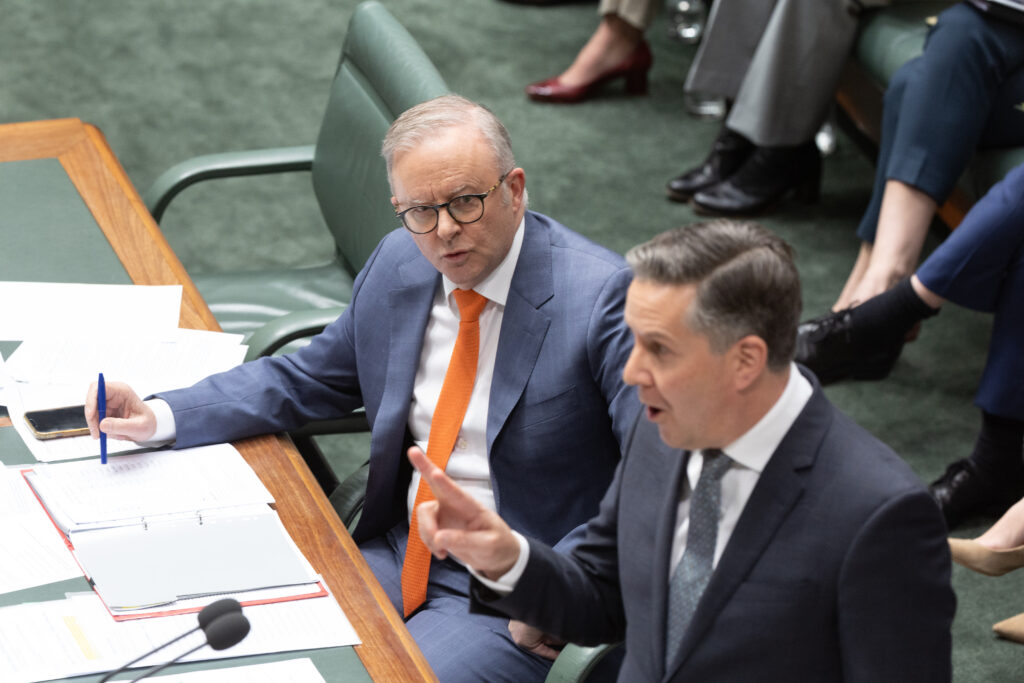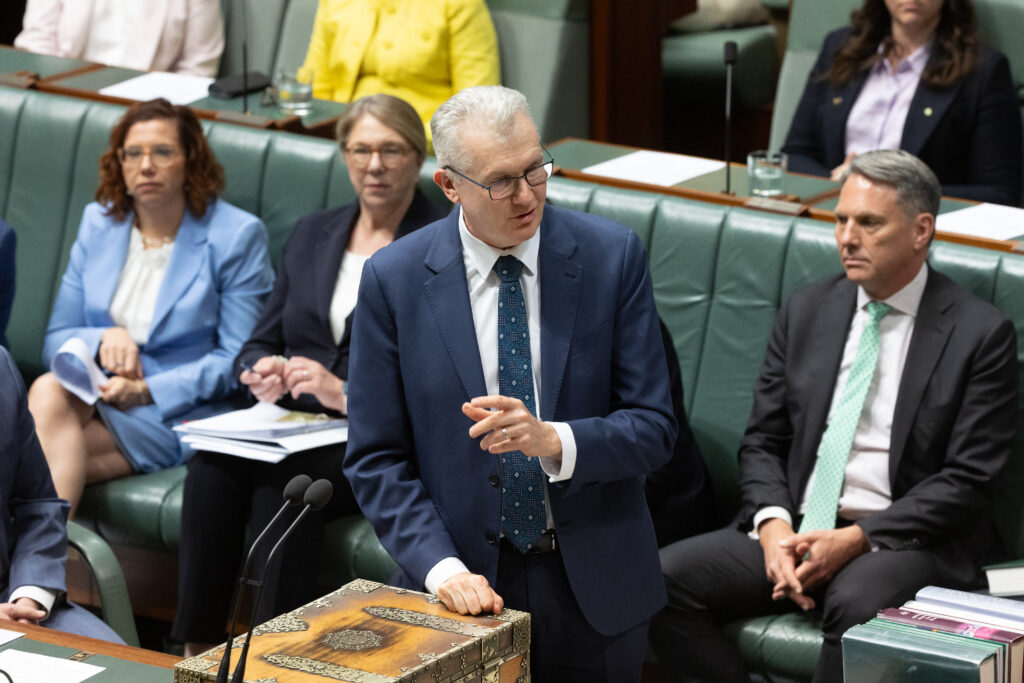There has been a roundtable on AI at parliament today – Rachel Jackson of AAP covers that here:
When an opportunity arose to work with artificial intelligence and messaging, bank teller Kathryn Sullivan embraced it as a welcome change.
But Ms Sullivan was inadvertently training a chatbot that would lead to the end of her 25-year career at Commonwealth Bank.
It’s an experience that pushed the 63-year-old to share her story at an AI symposium in Canberra on Wednesday, which brought workers, unions, ministers and tech leaders together to discuss the future of new technologies.
Ms Sullivan said she liked the idea of having tools that could help her provide better services, but there needed to be more consultation for affected workers.
Before being made redundant in July, she had no idea that her job was on the line.
“I was completely shell-shocked, alongside my colleague,” Ms Sullivan told AAP.
“We just feel like we were nothing, we were a number.”
The bank then did a U-turn on the job cuts, offering Ms Sullivan and colleagues their positions back weeks later.
But the role was different to the one Ms Sullivan had left, and she was not guaranteed her position would remain secure, so she opted for the redundancy.
At Wednesday’s meeting, Australia’s peak union body embraced a government push to harness artificial intelligence as a force for growth, while advocating for laws that businesses fear will stifle the technology.
Australian Council of Trade Unions assistant secretary Joseph Mitchell said there needed to be an agenda that empowered jobs, workers and growth through AI.
His speech followed the government’s economic reform roundtable, where the regulation of AI formed a major dividing line between employers and unions.
But Mr Mitchell said the meeting delivered a positive breakthrough.
“While rhetoric and reporting suggests an unbridgeable gulf between workers, users, developers and employers on AI – the reality is different,” he said.
“Unions and the tech industry are engaging to find ways to protect and promote our creative sector workers and academics.”
Introducing AI laws is essential to ensure employers and workers are consulted before new technologies are introduced, as well as to protect creatives’ work from large-scale tech company theft, Mr Mitchell said.
Workers’ voices must remain at the centre of AI adoption, Assistant Productivity Minister Andrew Leigh assured unions at Wednesday’s meeting.
“The Australian ideal of the ‘fair go’ means that prosperity is shared,” he said, meaning “technology should serve people, not the other way around”.
The minister welcomed AI as a force for good, describing the technology as a “once-in-a-generation chance” to restore workers’ dignity after decades of rising inequality and casualisation.
Labor senator Tim Ayres raised questions about the extent Australia adopts technology from overseas, rather than shaping the landscape ourselves.
“How we co-operate and collaborate with our neighbours and partners and competitors on these questions is up for grabs,” he told the meeting.
Following the productivity roundtable, Treasurer Jim Chalmers said the government would perform a “gap analysis” of Australia’s existing laws to determine whether AI regulation would require a dedicated AI act.
The analysis is expected to be delivered by the end of 2025.



